Note: This study is from my book, (#AmazonAdLink) God’s Blueprints for Church Growth.
The Model for Church Growth (Ephesians 4:13)
… till we all come to the unity of the faith and of the knowledge of the Son of God, to a perfect man, to the measure of the stature of the fullness of Christ … (Ephesians 4:13)
My brother is an architect, and several years ago, the firm he works for was hired to design an addition to the largest church in town. During that time, I remember stopping into his office when the planning process was in its final stages. He was working on putting together a miniature chipboard model of what the church building would look like with the expansion.
He was almost done with the model at the time, and I remember looking at it in awe. He had cut out all the windows. He had made topographical contour lines and inserted little trees here and there on the model grounds. When I expressed my amazement at the details, he told me that while he didn’t include them on this model, he sometimes adds little cars and people.
Upon seeing the incredible detail, I asked him how much time such a model takes. He told me that while the length of time depends on the complexity of the model. This particular model took a couple hundred hours and cost several thousand dollars.
A couple hundred hours and several thousand dollars? I wanted to gag. What this mega-church spent on a model could have supported my struggling little church for several months. Aside from that, it seemed like a terrible waste of the architect’s time. But I had seen other construction models of this sort before, and so I asked my brother why churches and companies spent money to have these models built. The reason, he told me, was that models help generate interest in the building project. Models help with fundraising and vision-casting. People like to see what the end result will be before they get on board to donate money. Statistics show that money spent on the model generates more money for the actual project.
As I left his office that day, it occurred to me that God also provided a model for His church. God, as the Architect of the church, in His endeavors to expand the church, created a model for us. But God’s model was not for the purpose of raising funds, but was provided to inspire and show us what the church will look like. God’s model helps generate interest in the building project so that we serve in the church as God intends. As we continue to look at God’s Blueprints for Church Growth, we see in Ephesians 4:13, the model for the church. Ephesians 4:13 says this: “… till we all come to the unity of the faith and of the knowledge of the Son of God, to a perfect man, to the measure of the stature of the fullness of Christ.”
Ephesians 4:13 contains three aspects, or three dimensions to the Model God seeks for His church.[1] Just as all architectural models are made in three dimensions, width, depth and height, God’s model also has three dimensions. The width of God’s model is the unity among Christians. The depth of God’s model is the maturity we develop. The height of the model is our growth into Christ-likeness.
Width: Unity
The first dimension, unity, is found in Ephesians 4:13. This text continues from Ephesians 4:11-12, which inform us that the Foremen equip the Crew to serve in the church until we all come to the unity of the faith and of the knowledge of the Son of God.
This makes sense considering the context and structure of the book of Ephesians. Ephesians 4–6 makes up the practical application section of Paul’s letter based on the truths he taught in Ephesians 1–3. Paul begins chapter 4 by instructing his readers to walk in unity. This is what the first 16 verses are all about. He wrote in Ephesians 4:3 that Christians should endeavor to keep the unity of the Spirit, and now, in Ephesians 4:13, he writes that the first dimension of the church model is unity.[2] In other words, unity is what should characterize the church.
 Yet too often, churches are more likely to be characterized by strife, division, and personal differences of opinion. Churches are divided over theology, politics, leadership, music style, finances, ministry opportunities, community involvement, what is and isn’t sin, and numerous other issues. It sometimes seems there is nothing the church will not argue about.
Yet too often, churches are more likely to be characterized by strife, division, and personal differences of opinion. Churches are divided over theology, politics, leadership, music style, finances, ministry opportunities, community involvement, what is and isn’t sin, and numerous other issues. It sometimes seems there is nothing the church will not argue about.
This is why unity is the first dimension of the church that God wants to build. Since division and strife is the default position of most of the world, a church that is known for its love and unity will be a light in the darkness, showing the world how to live in peace.
When unity develops in the church, it allows all people to work together for the common purpose to which we are called. But this doesn’t mean we are all clones. We do not all work in the same way on the same projects. To the contrary, biblical peace enables us to live in our own unique way and with our own unique contribution, allowing others to offer their unique insights and contributions as well. Unity occurs when everybody does what he or she is best able to do in order to serve others. Unity comes when all share a common goal, a common purpose, a common vision, and a common direction, but within a framework of letting everyone be unique.
This is how it works with any building. A building consists of a wide diversity of pieces and parts, yet everything is put together with a unified purpose. Not everything is a window or door, but all the pieces—including the windows and doors, as well as the nails, wires, pipes, beams, paint—work together to make the building functional. Where there is no common purpose or unity of theme and goal, the building will not be functional or safe for those who use it.
Several years ago, I worked as a caretaker at a summer Bible camp. One week I was told that the camp needed a storage rack for the life-jackets and canoe paddles, and I was asked to build one. The person who asked me to build a rack never bothered to ask if I knew much about construction, and I didn’t bother to tell them that I was a complete novice in such matters. In hindsight, I should have asked for a quick introductory tutorial.
Prior to this, I had never really built anything, but I figured that it couldn’t be too hard to build a little rack for paddles and lifejackets. So without any sort of plan or preparation except for some vague idea in my head of what I wanted to build, I started throwing 2x4s together. I didn’t really do any measuring, but just took some scrap lumber lying around that looked “about the right size” and nailed them to some trees. I then decided that since the life jackets were outside, it might be nice to protect them from the rain, so maybe I should put a roof over them. Once again, I nailed a few pieces of lumber together and then fastened some plywood on top, then found some scrap metal roofing to finish things off.
As a result of my lack of planning and knowledge, the “shack” I constructed was anything but unified. It was about eight feet square and five feet high. Yet even this was overkill, since all it had to do was store about twenty lifejackets and ten paddles. It had no foundation except a tree root and two cinder blocks. Since I knew nothing about construction, I was unaware that the 2×4 framing studs for the ceiling needed to be spaced to match the 48-inch sheets of plywood. So the plywood pieces I nailed to the ceiling overhung the 2×4 frame by about 10 inches on each side. To make matters worse, I had failed to measure the metal roofing, so that when I went to screw the metal roofing pieces to the plywood, the pieces were too long. I dealt with this by getting out the tin snips to cut them down to size, leaving sharp jagged edges. Furthermore, when I screwed the metal roofing to the roof, I used the wrong size of screw, and many of the screws punched through the plywood to the underside of the roof.
The end result of my attempt at construction was a building that was not only ugly and rickety, but also quite dangerous. The edges of the jagged metal roofing were at face level so that anyone approaching the shack had to be careful they didn’t cut their face. But the danger didn’t end there. If they ducked their head to get a life jacket or paddle from the shack, they had to watch out for the sharp screws sticking through the roof.
But it was the first thing I had ever built, and initially, I was quite proud of that shack. Ironically, we had a master carpenter at the Bible camp who was constructing an actual building, and so I, in my ignorance, called him over to assess my work. He had spent weeks so far on his building, but I had put mine together in a few hours and wanted to show off my little pile of scrap lumber to the master carpenter.
He was very kind. He looked at my newly-built shack, and said, “Hmm … Well … It’ll work. All we need it to do is store the life jackets and paddles.” Then he went back to constructing his building.
The primary difference between our two buildings came down to one thing: Unity of purpose and planning. I did not build my shack with all the pieces and purposes in mind. I used the same studs, plywood, and sheet metal roofing that the other carpenter used, but he put his together according to a set of blueprints that showed how all the pieces fit together as a unified whole. I had no unified plan or purpose.
Later that summer, a storm blew my shack over and it got hauled away to the burn pile. Last time I was at the camp, his building was still standing, fifteen years after it was constructed. And by all appearances, it should stand for at least another fifty.
This story of two buildings, one with a unified plan and purpose and one without, represents the two ways that the church can grow and develop. Where there is no unity, the church will crumble into chaos and conflict until the first stiff breeze blows it over. But when the church is built according to the unified model that God lays out in Ephesians 4, the church will grow strong and sturdy so that it stands the test of time.
The great problem with unity however, is that few can agree with what unity looks like. Just as Christians argue and debate about everything from creeds to carpet color, so also, Christians argue and debate about how to be unified. Everybody agrees that unity is important, but few agree on how this unity is to be achieved. For example, some Christian groups seem to think that unity can only be achieved when everybody thinks like them, talks like them, dresses like them, and behaves like them. They want everyone to sign on the dotted line, color within the lines, and toe the party line.
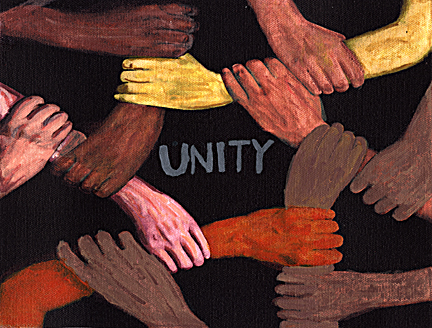 But is this true unity? Unity is not necessarily the same thing as uniformity. We do not all have to be identical in order to live in unity. God is not interested in cloning Christians. Instead, we can learn what true unity looks like by seeing how God designed unity in creation. All of creation works and functions together toward a common divine purpose and goal, and yet it does this with incredible diversity. Each part of God’s creation allows each other part to function as designed and intended. This is the only way God’s creation works.
But is this true unity? Unity is not necessarily the same thing as uniformity. We do not all have to be identical in order to live in unity. God is not interested in cloning Christians. Instead, we can learn what true unity looks like by seeing how God designed unity in creation. All of creation works and functions together toward a common divine purpose and goal, and yet it does this with incredible diversity. Each part of God’s creation allows each other part to function as designed and intended. This is the only way God’s creation works.
This is also the only way God’s church works. True church unity is achieved when each person recognizes that all other people have different tastes, desires, interests, and abilities, and rather than see these differences in others as weaknesses to be exploited or flaws to be fixed, this diversity is celebrated and enjoyed as part of God’s plan and purpose for the church. So rather than seek uniformity, true unity celebrates diversity, letting others be who God made them to be, just as we want them to let us be who God made us to be. Unity is not when we love others in spite of their differences, but in light of them.
This means that we don’t all need to be in agreement on everything or act in identical ways, in order to live together in unity. The church can be as diverse as creation and yet still serve God. Nevertheless, there are a few essentials about which all should agree. Paul lists two of these in Ephesians 3:13. He says he wants us all to come to the unity of the faith and of the knowledge of the Son of God.
The Faith
The first item a unified church needs to be in agreement on is the faith. As I discuss in my Gospel Dictionary online course in the lesson on the word “faith”, and in my book, (#AmazonAdLink) What is Faith?, the noun faith is primarily used in two ways throughout the New Testament. The first way is the way we most often think of it, as a synonym for belief. Faith is typically defined as a belief, reliance upon, confidence in, or persuasion about the truth of some claim. Therefore, to talk about faith in Jesus Christ for eternal life is to say that we believe that Jesus is speaking the truth when He says that He gives eternal life to those who believe in Him for it (John 3:16; 5:24; 6:47; etc.). We can also believe, or have faith, in the truth claims that God exists, that Jesus died and rose again, and that the Bible can be trusted. This form of the word faith is the most prominent way the word is used in the Bible.
However, there is a second way the word is used as well. At several places in Scripture, the word “faith” is preceded by the article—the word “the”—as Paul uses it here in Ephesians 4:13. In these cases, “the faith” does not refer to believing or being persuaded that something is true. Instead, “the faith” refers to the body of common Christian beliefs or the essentials of Christian life and practice (cf. Acts 6:7; 13:8; 14:22; 16:5; 1 Cor 16:33; 2 Cor 13:5; Gal 1:23; 6:10; Php 1:25; Col 1:23; 1 Tim 1:2; 4:1; 5:8; 6:10, 21).
We use the phrase “the faith” similarly in our own language when we refer to other religions. For example, we might talk about the Mormon faith, the Jewish faith, or the Islamic faith. We could also speak of the Christian faith. In all of these cases, we are referring to the whole system of beliefs and practices which differentiate one system from the others. The Bible uses the term similarly. When the Bible speaks of “the faith” it is speaking of the doctrines and practices which separate followers of Jesus from those who follow something or someone other than Jesus.
So while “faith” by itself refers to being convinced or persuaded that something is true, the phrase “the faith” refers to the set of beliefs and practices that are common to all Christians. This difference is seen when a person is asked about when they became a Christian, and how long they have been a Christian. In the first case, the question could be phrased, “When did you first place faith in Jesus Christ?” In the second case, the question is sometimes phrased, “How long have you been in the faith?”
Therefore, when Paul writes that God wants Christians to come to unity of the faith, he is giving instructions for Christians to agree on the basic non-negotiables of Christian life and practices. But of course, this is where the problems start, for what are the basics? What are the non-negotiables? I wish Paul would have laid out a few, for this statement of his has created much disunity in the church as we all try to figure out what the central beliefs actually are. If you ask one hundred pastors to name the top 10 core essential beliefs of Christianity, you will likely receive one hundred different top ten lists.
Nevertheless, if we could all sit down and talk things over, maybe we would come up with a few basic fundamentals of the faith. We would, of course, agree that there is a God. There should probably also be a statement about the authority of Scripture (even if we didn’t necessarily all agree on the inspiration and inerrancy of Scripture). There would absolutely have to be a statement about the nature and character of Jesus Christ as God incarnate, since He is, after all, the foundation and center of Christianity. Finally, it would also be important to mention one of the main things that separates us from all other religions and cults, which is the foundational Christian teaching that eternal life is by grace alone, through faith alone, in Jesus Christ alone, apart from works. Without this final truth, Christianity is nothing more than just another works-based religion.
Beyond these non-negotiables, there are other things which Christians might want to include. From a historical standpoint, we could probably do no better than to simply point to the Apostle’s Creed or Nicene Creed, which uphold God as the creator of the universe, the Godhead as existing eternally in three persons, the dual nature of Jesus Christ, the virgin birth, the death, burial, and resurrection of Christ, the reign and return of Christ, and the person and work of the Holy Spirit.
There may be others that we should all agree on if we are going to become unified, but those are just a few examples of the essential beliefs of the faith which Paul mentions here in Ephesians 4:13.
 But as was mentioned above, “the faith” includes more than just doctrine; it is more than just a set of beliefs. “The faith” also includes how Christians behave and act toward one another. If church members are going to get along, they might need to agree on a few basic ideas on how to live and act in this world and with each another.
But as was mentioned above, “the faith” includes more than just doctrine; it is more than just a set of beliefs. “The faith” also includes how Christians behave and act toward one another. If church members are going to get along, they might need to agree on a few basic ideas on how to live and act in this world and with each another.
Yet here we must be extremely careful. One generation’s morality issues can lead to sin in a later generation. For example, Paul’s admonition in Ephesians 6:9 for masters to treat their slaves well, was used by a later generation as permission for slave ownership.
This is why we must be careful. We must make sure we do not go as far as some churches and denominations do, in having written dress codes, along with rules about drinking, smoking, movies, music, dancing, and cards. Most of these issues are modern parallels to the issue of eating meat sacrificed to idols which Paul writes about in Romans 14 and 1 Corinthians 10. On such issues, we would be wise to remember Paul’s final admonition in Romans 14:5-14 that we are not to judge each other in these matters. God has given some people freedom to do things which others do not have. The fact that each one will stand before the judgment seat of Christ to give an account of himself to God (2 Cor 5:10) should be enough of a reminder for us to abide by our own conscience and let others do the same. Operating in this way will greatly increase the unity we have with one another.
Therefore, when it comes to issues of morality, it seems that the only rule which should govern our behavior is the rule of love. Love is the guiding principle and ethic of the person who follows Jesus. As we live and exist within relationships with other people, we do so, not with a list of Dos and Don’ts, but with a desire for love. We are to love others and live in a way that invites them to love us. Issues of morality, therefore, are determined with the whole community of Christians in mind and can shift and change from one generation to another, or from one geographic location to another. There are only two ways to live: by law or by love. The Christian way is love.
So these are some of the Christian beliefs and behaviors which will help Christians grow in unity with each other. In a later letter to the young pastor, Timothy, Paul invited him to watch his life and doctrine closely (1 Tim 4:16). Paul’s admonishment to Timothy very closely reflects Paul’s instructions here to the Ephesians. How Christians live and what Christians believe is what makes up “the faith.” The church grows in unity when it agrees on what to believe and how to live in love for one another. But unity in “the faith” is not the only aspect to growing in unity. Unity is also developed as we grow in the knowledge of Christ, which Paul mentions next.
Knowledge of Christ
The second area which allows Christians to grow in unity with one other is the knowledge of Christ. For growth in unity, there is nothing better than gaining a deeper knowledge of Jesus, our Lord and Savior. But we must understand that the knowledge Paul has in view here is not just a superficial knowledge of Christ. Paul is not just talking about “book knowledge.” The normal word for knowledge is gnōsis, but Paul uses the word epignōsis, which is similar, but means something closer to “knowledge upon knowledge.” It is used throughout Scripture as a full, complete, and detailed knowledge (Rom 3:20; 10:2; Eph 1:17; Php 1:9; Col 1:9-10; 2:2; 3:10; 1 Tim 2:4.; 2 Tim 2:25; 3:7). It is to know something exactly, completely, through and through. It is a certain and sure knowledge. It is this kind of knowledge we are to have of Jesus Christ, and which will lead us into Christian unity.
Yet is this kind of knowledge even possible? No; not in this life. Earlier, Paul wrote that he wanted the Ephesian Christians to know that which cannot be known, namely, the love of Christ (Eph 3:18-19). But how can we know that which cannot be known? How is it that we can gain a full, detailed, and complete knowledge of Jesus Christ? How can we have knowledge upon knowledge?
The answer is to recognize that since we can never fully know or comprehend Jesus Christ, we are to do two things. First, we are to add to the knowledge of Christ that we already have. Since epignōsis could be translated as “knowledge upon knowledge,” it could be understood to mean that we are to be constantly adding knowledge to the knowledge we already have. We are to build on our knowledge of Jesus Christ. We do this, of course, through study, prayer, and following Jesus wherever He goes.

But this constant pursuit of the knowledge of Jesus Christ is dangerous if we do not also incorporate the second element of gaining this knowledge, which is humility. Since we can never fully know Jesus Christ, this means that our knowledge of Him is never full or complete. And therefore, we are ignorant of some things regarding Jesus, and flat-out wrong about others. Anybody who has been a Christian for any length of time can think back to a day when they believed something wrong about Jesus. But through study and growth as a Christian, you grew in your knowledge of Jesus Christ, and came to believe something different today. That experience should always keep you humble about what you currently believe today. For it is only a humble student who will always be a learning student, and it is only a humble and learning Christian who will recognize that they don’t know it all, and therefore, they can seek out and learn from other Christians who might have different perspectives or ideas about Jesus Christ and how to follow Him in this world.
So yes, study and learn from Scripture, while putting into practice what you learn. This will slowly and resolutely conform you to the image and likeness of Jesus Christ, which will help you grow in unity with others. But as this process unfolds over time, make sure you also remain humble, allowing the convicting and illuminating work of the Holy Spirit and the sharpening influence of other Christians to teach you ever more about Jesus. This too will help you grow in unity with God, and with other members of His church.
Unity is the first dimension to the model that God has provided for His church. It is something we are to strive for and seek after, especially as we grow in unity in the faith and in knowledge of the Son of God. As we do this, we will also be begin to develop in the second dimension of the church model, which is Christian maturity.
Depth: Maturity
The second dimension of the model that we are seeking to attain is Maturity. This is found in the next part of Ephesians 4:13: to a perfect man. The Foremen of verse 11 train the Crew in verse 12. As the Crew learns to use their God-given gifts for ministry, each one grows into maturity, and the church as a whole becomes perfect.
This does not mean that any one of us will become perfect or sinless this side of heaven. The word Paul uses here for perfect is teleios, which refers to arriving at the end, or goal, for which you were created. It is not so much about arriving at the destination, but about journeying toward it. The quest for Christian maturity is an ongoing journey as we seek to become more and more like Jesus with each passing day.
So Paul’s invitation for the church to become perfect is an invitation to grow into maturity. We know this is what he means because he elaborates further in verse 14 where he writes “that we should no longer be children, tossed to and fro and carried about with every wind of doctrine, by the trickery of men, in the cunning craftiness of deceitful plotting,”
An immature Christian, a baby Christian, is someone who is not biblically and doctrinally grounded. They are not yet able to tell the difference between good theology and false theology, or good teaching and bad teaching. Baby Christians think that as long as Scripture is quoted—the teaching must be okay. Baby Christians think that as long as the pastor or the teacher has some Bible school training, some letters after or before their name, or some pastoral experience, what they are saying must be okay. Baby Christians think that as long as a teacher or a pastor has a few books published or is broadcast on the radio or television they must be correct in what they say. Baby Christians are easily swayed by fine-sounding arguments. Baby Christian do not search the Scriptures to see if what they are being taught is true.
The good news is that a baby Christian can grow up. A spiritual baby can mature just like a physical baby. Human babies mature physically as they eat healthy meals, get enough rest, receive discipline, and are trained to be physically, emotionally and socially responsible. Similarly, a baby Christian can mature by eating a healthy diet of Scripture reading and listening to sound Bible teaching. They can discipline their minds to pray and their wallets to give. A maturing Christian can get involved with other believers so they can learn to serve others. In these ways, the Christian will mature, and the church as a whole will also develop toward its goal and end.
This idea of guarding and guiding Christians will be considered more in the next chapter where we look at Ephesians 4:13. For now, it is important to recognize that Christian maturity is the second dimension of the model for the church. We are to strive toward our goal, or end, for which we were created, the perfect man, the mature Body of Christ, which is what Paul describes next.
Height: Christ-Likeness
The third and final dimension, found at the end of Ephesians 4:13, is Christ-likeness. Paul writes that we are to grow into the measure of the stature of the fullness of Christ. Previously, in Ephesians 4:13, he told us to gain as much knowledge about Christ as we possibly could. Now he tells us to become as much like Christ as we possibly can. One follows the other. Before you can be like Christ, you need to know what Christ is like. Many people think that Bible reading and Bible study is a waste of time, but we are only able to become more like Jesus as we learn more about Him through Scripture. “We get no deeper into Christ than we allow Him to get into us.”[3] We do this according to His measure, stature and fullness. Let’s look at these one at a time.
Measure
The first way to become like Christ is in His measure. The word measure comes from the Greek metron, which is where we get our word metric. So Paul is saying, “Go to great lengths to become like Jesus Christ in every way. From the smallest little bit to the largest part.” Become like Christ in His measure.
Stature
 The word stature frequently refers to age, or number of years. But Jesus only lived to be 33 years old, so Paul cannot be saying then that all we have to do is live to be 33. Instead, the word can also refer to the reputation one gains for themselves as they grow older. In Luke 2:52, when Jesus is said to be growing in wisdom and in stature, we also see that He was beginning to gain a good reputation with other people. As Jesus aged, He gained stature, or a positive reputation, among others.
The word stature frequently refers to age, or number of years. But Jesus only lived to be 33 years old, so Paul cannot be saying then that all we have to do is live to be 33. Instead, the word can also refer to the reputation one gains for themselves as they grow older. In Luke 2:52, when Jesus is said to be growing in wisdom and in stature, we also see that He was beginning to gain a good reputation with other people. As Jesus aged, He gained stature, or a positive reputation, among others.
This is the way it is with all great men and women in history. Nobody knows who the great men and women are when they are first born. Nobody knew George Washington or Clara Barton when they were first born. But as they grew older and matured, they served courageously and self-sacrificially, and as a result, gained a good reputation before others. This is what it means to gain stature.
Sadly, much of Christianity has bad stature. In recent decades, survey after survey and study after study has shown that the average non-Christian has a low view of the average Christian. Christians do not have a good reputation, but are instead known for being judgmental, rude, arrogant, and hypocritical. But we can work to reverse this stigma if we do the things Paul writes about in Ephesians 4:13. If we live in unity with one another and strive to become mature Christians, we will gain a good reputation among outsiders. We will, like Christ, grow in wisdom and stature and in favor with God and men.
Fullness
Finally, we are to become like Christ in His fullness. This means that we become like Him in every way. We cannot pick and choose which parts of Jesus Christ we want to imitate. We are to become like Him in His fullness. God wants every aspect of the church to be like every aspect of Jesus Christ. Whenever you trying to decide how to act, talk, or behave, it is wise to stop and ask yourself which words or actions look most like Jesus. When we ask ourselves this question and live as Jesus lived, we will develop into the fullness of Jesus Christ.
Christ-likeness involves becoming like Him in His measure, stature, and fullness. Although we’ve seen the three dimensions of the model church which God the architect is building—unity, maturity, and Christ-likeness—when we really get down to what the model looks like, it is this last statement from Ephesians 4:13 that is most prominent. The church’s model is Jesus Christ. If you want to know how you should live, think, and act, all you have to do is look at Jesus. If you want to know what the church should look like, what the church should be doing, and how the church should act—all you have to do is look at Jesus Christ.
Back in Ephesians 1:22-23, Paul wrote that “[God] put all things under [Christ’s] feet, and gave Him to be head over all things to the church, which is His body, the fullness of Him who fills all in all.” Note the word fullness again. The church is the fullness of Christ. The church is Christ to the world. If people in the world want to see and know Jesus Christ, they should be able to look at the church as the reflection of Jesus. Since Jesus perfectly reveals God to us, we are to reveal Jesus to others, so that by looking at us, they see Jesus, and therefore, God in us.
So Jesus Christ is our model. Everything we do, think, and say as individuals and as a church should be patterned after what Jesus did, what Jesus thought, and what Jesus said. And as we pattern ourselves after the model of Jesus Christ, we ourselves become a model of Jesus for the world to see.
Conclusion
When my brother built a model for the church expansion, he said that the model helped people see what the end product would look like, which in turn helped people get excited about where the building was going. God too, has laid out a model for us in Scripture. If we want to know what we’re going to look like, if we want to get excited about our future, then we need to develop a complete and thorough knowledge of Jesus Christ, and then seek to live, love, and serve like Jesus.
Only when we all do this will we all come to a unity of the faith, and of the knowledge of the Son of God, to a perfect man, to the measure of the stature of the fullness of Christ. Only then will we become like our Model, Jesus. How are you and your church doing in living like this Model and revealing Him to the world?
NOTES:
[1] In the Greek, eis is repeated three times, showing that there are three aspects listed here.
[2] These two times are the only times this word for unity (henoites) is used in all of the New Testament.
[3] (#AmazonAdLink) Springs in the Valley, May 21, 147.

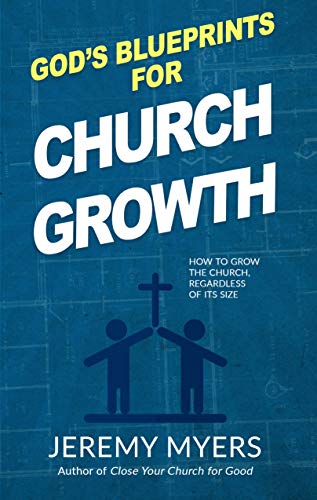
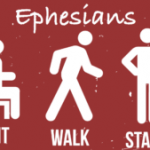

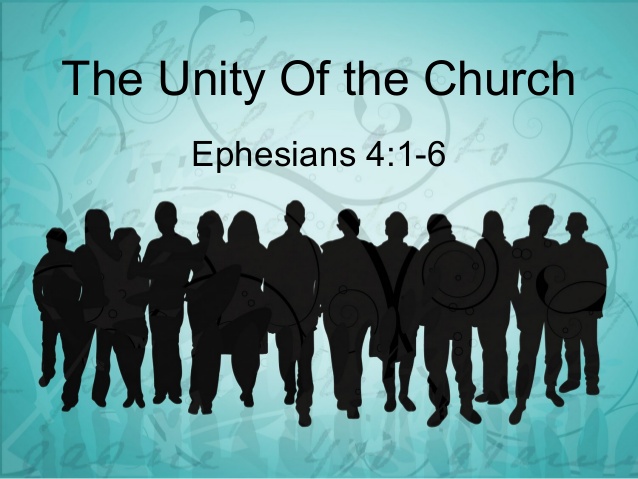
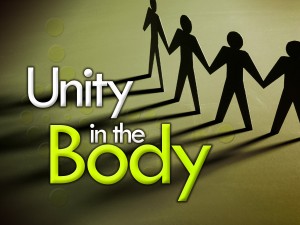 One body, one spirit, one hope, now, fourthly, in Ephesians 4:5, one Lord.
One body, one spirit, one hope, now, fourthly, in Ephesians 4:5, one Lord.


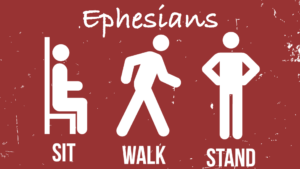
 Let me just say that the word “calling” has nothing whatsoever to do with God’s irresistible call of some people to eternal life. It is not about who goes to heaven after they die. Calling, as we see here, is about God inviting some people to get involved with His purposes for this world. It is call to serve Him and what He wants to do in this world.
Let me just say that the word “calling” has nothing whatsoever to do with God’s irresistible call of some people to eternal life. It is not about who goes to heaven after they die. Calling, as we see here, is about God inviting some people to get involved with His purposes for this world. It is call to serve Him and what He wants to do in this world. Did Jesus get angry? Yes, quite frequently. Remember when he cleared out the temple? Praotes, gentleness, does not mean never getting angry. It means getting angry at the right time, in the right measure, and for the right reason. It is the idea expressed in Ephesians 4:26, which says, “Be angry, and do not sin.”
Did Jesus get angry? Yes, quite frequently. Remember when he cleared out the temple? Praotes, gentleness, does not mean never getting angry. It means getting angry at the right time, in the right measure, and for the right reason. It is the idea expressed in Ephesians 4:26, which says, “Be angry, and do not sin.”




 How big is God? If you know some theology, you know that God is omnipresent. If we break this word down into two words. No matter where you are in the universe, God is there. He is everywhere. In fact, even when you get to the edge of the universe – where time and matter cease to exist, God does not stop there. He keeps going. That’s how big God is.
How big is God? If you know some theology, you know that God is omnipresent. If we break this word down into two words. No matter where you are in the universe, God is there. He is everywhere. In fact, even when you get to the edge of the universe – where time and matter cease to exist, God does not stop there. He keeps going. That’s how big God is. E. The Encouragement (Ephesians 3:20-21)
E. The Encouragement (Ephesians 3:20-21) He has had three prayer requests for the impossible, and then says God can not only do it, he can double do it – He can triple do it. He can run circles around it. He can do it with his eyes closed, and one hand tied behind his back. He can do exceedingly abundantly above all. If that’s not enough, look at the rest of verse 20. He can do above all that we ask or think! Paul says, God can do this and more. He says, if I can ask it, God can do it. If I can think it – or imagine it – God can do that too. In fact, God can do things I can’t even imagine! God can do things I can’t even think about!
He has had three prayer requests for the impossible, and then says God can not only do it, he can double do it – He can triple do it. He can run circles around it. He can do it with his eyes closed, and one hand tied behind his back. He can do exceedingly abundantly above all. If that’s not enough, look at the rest of verse 20. He can do above all that we ask or think! Paul says, God can do this and more. He says, if I can ask it, God can do it. If I can think it – or imagine it – God can do that too. In fact, God can do things I can’t even imagine! God can do things I can’t even think about!

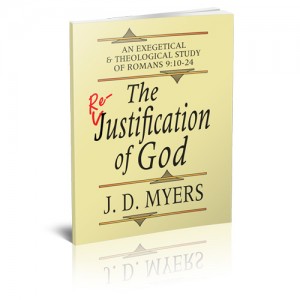


 1. God Provided
1. God Provided
 Some of the Jews were thinking, “You mean I have to go over to that Gentile’s house when he invites me over for dinner? I can’t do that! He might serve meat sacrificed to idols! He might not be following the strict cleanliness laws. I might become ceremonially unclean! Paul can’t be serious. There’s no way I can get along with them.”
Some of the Jews were thinking, “You mean I have to go over to that Gentile’s house when he invites me over for dinner? I can’t do that! He might serve meat sacrificed to idols! He might not be following the strict cleanliness laws. I might become ceremonially unclean! Paul can’t be serious. There’s no way I can get along with them.”